
Imago
Image Credits: Instagram/@oksana2016

Imago
Image Credits: Instagram/@oksana2016
At 50, Oksana Chusovitina continues to deliver routines that most gymnasts decades younger would not attempt. In June, just a day after her birthday, she won a silver medal on vault at the World Challenge Cup in Tashkent, adding to a gold earned weeks earlier at the Baku World Cup. These results came despite two years marked by illness, repeated setbacks, and a calf injury that kept her from competing at the Paris 2024 Olympics. Because for Chusovitina, competition has never been only about medals. It has long been tied to survival.
Watch What’s Trending Now!
That connection began in 2002 when her son, Alisher, was diagnosed with leukemia at the age of three. Uzbekistan did not have the necessary facilities to provide the treatment he required. “If I don’t compete, then my son won’t live, it’s as simple as that,” she later shared. She sold her home, moved her family to Germany, and resumed competition at the highest level, knowing every prize purse and sponsorship could help cover medical bills. While that decision kept her career alive, more importantly, it gave her son a chance at recovery.
Alisher spent months in a hospital in Cologne, undergoing rounds of chemotherapy that often left him unrecognizable. Chusovitina would spend long days by his bedside and then escape to the gym in the evenings. “It was Oksana’s escape where she could forget about everything,” recalled her former teammate Svetlana Boguinskaia. “She would spend all day in the hospital, and at the end of the day, [she would] go into the gym. She told me that being in the gym doing gymnastics helped her mentally and gave her strength and power to believe Alisher would survive.” Training became a discipline not only for her career but for her state of mind.
ADVERTISEMENT
Her results during that time reflect both necessity and resilience. She won vault at the 2003 World Championships, then added silver and bronze medals in subsequent years. At the 2008 Beijing Olympics, at the age of 33, she captured a silver medal on vault while representing Germany. But the medal ceremony was overshadowed by news she received on the way home…
Alisher’s doctors declared him cancer-free. She has often described that moment as more meaningful than any athletic achievement. And Beijing became her most cherished Games, not because of the medal but because it coincided with her son’s recovery.
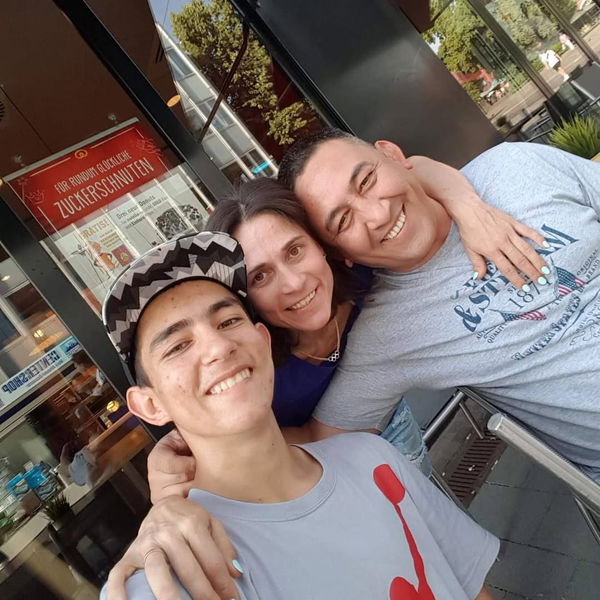
Imago
Image Credits: Instagram/@oksana2016
Alisher, now 25, studies mathematics and physical education in Cologne and works as a children’s basketball coach. He calls his mother after every competition, whether she wins or not. “He is a very attentive son,” she has shared. And Alisher’s survival remains the measure against which she compares every achievement. The years of sacrifice, the strain of competing far beyond a typical gymnastics career, and the move across continents were bound together by his illness and eventual cure.
ADVERTISEMENT
And for Boguinskaia, Chusovitina’s longevity is inseparable from the ordeal she endured as a parent.
ADVERTISEMENT
“What makes Oksana so unique is that with every setback, she comes out even stronger,” she mentioned. That strength was forged in the hospital corridors of Cologne as much as in training halls.
And now, Chusovitina’s pursuit of a ninth Olympic appearance in Los Angeles is remarkable, but the deeper story is the one she wrote years earlier when she fought for her son’s life and discovered that gymnastics could be more than sport. While she struggled to save her son, Oksana Chusovitina learned to silence her deepest fears to compete as her son fought for his life.
ADVERTISEMENT
How Oksana Chusovitina turned her son’s darkest battle into Olympic strength
The sight of Oksana Chusovitina saluting the crowd in Rio carried with it a weight far heavier than medals or scores. Years earlier, when her son’s illness consumed every waking thought, she discovered that the most dangerous element in gymnastics was distraction.
“Gymnastics is a sport that, when you come to the apparatus, you should not have any extraneous thoughts, otherwise everything ends very badly…I left all my negativity in the gym and each time came to Alisher encouraged,” she once admitted. Yet for her, competing while her child fought for his life became an unavoidable reality.
Top Stories
Greg Biffle’s House Burglary Suspect Identified After Officials Release Security Camera Footage – Report

Scottie Scheffler Injures Fan in the Head at American Express as Painful Moment Is Caught on Camera
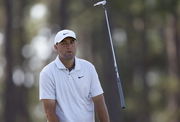
‘Hideous’: Jason Day Sparks Outrage With Outfit Choice at PGA Tour Season Debut
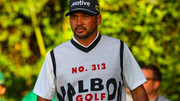
Brooke Henderson Ends 10-Year Caddie Partnership With Sister After Major Personal Announcement
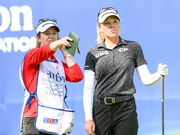
Indiana Fever Makes WNBA Announcement on Caitlin Clark’s 24th Birthday
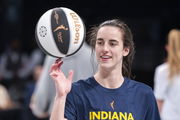
Josh Allen’s Strong Stance on Sean McDermott’s Exit Revealed After Owner Shared Bills QB’s Role in HC’s Firing
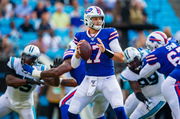

Reuters
Tokyo 2020 Olympics – Gymnastics – Artistic – Women’s Vault – Qualification – Ariake Gymnastics Centre, Tokyo, Japan – July 25, 2021. Oksana Chusovitina of Uzbekistan in action on the vault. REUTERS/Dylan Martinez
She made a deliberate choice to contain her grief and offer her son a sense of lightness. “Even if there is no hope, let the child remember not the sobs but something positive,” she explained. By leaving her sorrow behind in the gym, she not only preserved her son’s spirit but safeguarded her own ability to perform. In a sport that requires total presence, she trained herself to compartmentalize the unthinkable, knowing that an instant’s lapse could mean both personal injury and the collapse of her son’s chance at recovery.
ADVERTISEMENT
Throwing light on her financial struggles, she added, “We did not have a penny.” Oksana and her husband Bakhtier sold their apartment in Tashkent and their cars, just to raise the cost of the treatment of their son.
When she stepped onto the Olympic stage in Rio, older than most of her competitors’ mothers, the applause was not only for her vaults but for the hidden battle she had carried for years. She had endured a test of endurance beyond sport, continuing to compete while refusing to surrender to despair. What the spectators witnessed was not simply the persistence of an extraordinary gymnast but the triumph of a woman who had mastered the impossible art of balancing devastation with duty, and still found the strength to perform with composure before the world.
ADVERTISEMENT
ADVERTISEMENT
ADVERTISEMENT
ADVERTISEMENT